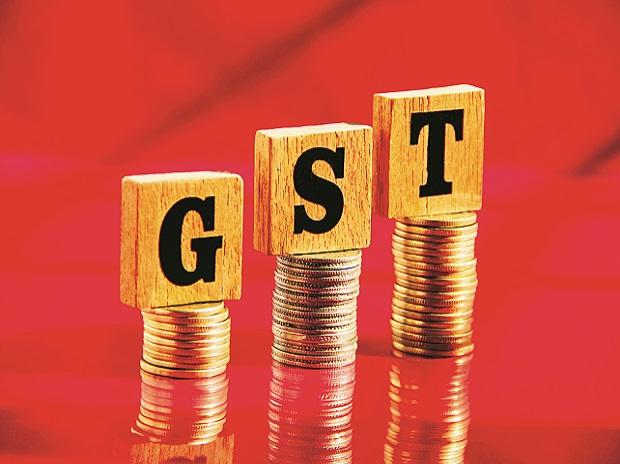Recycling Supertech twin towers demolition debris needs core policy changes to create environmental impact, say experts
As much as Rs 50 lakh would be earned from processing 30,000 tonnes of Supertech demolition waste but it will be liable for a GST amount of at least Rs 2.5 lakh (5 percent), recyclers say.
Every recycled precast product that has cement/concrete material attracts a GST rate of 18 percent. For other products, the levy is 5 percent.
Construction and demolition waste recyclers told Moneycontrol that this often propels customers to buy products made out of natural resources rather than recycled ones, especially in the absence of policy interventions in India.
What will happen to the debris from the twin towers?
They took just 12 seconds to vanish from the Noida skyline on August 28 but left behind a mountain of at least 80,000 tonnes of construction debris. According to Edifice Engineering, the company responsible for the demolition, 30,000 tonnes of the waste will be taken to a recycling plant in Noida Sector 80.
Re Sustainability, the company responsible for recycling the debris and converting it into construction material, told Moneycontrol the first load of at least 500 tonnes had already reached the recycling plant, at the time of writing this report.
“We have already started increasing our workforce to be able to process the additional 300 tonnes of waste every day, in double shifts,” said Mukesh Dhiman, project head at Re Sustainability “We will be able to process at least 28,000 tonnes in the next three months,” he added.
After reaching the recycling plant, which is spread over 5 acres, the debris will be processed in jaw crushers and other machines to produce a row of recycled products. The products include 10mm, 20mm, 30mm, and 40mm aggregated particles, fine manufactured sand (M-Sand), and coarse (larger particles) recycled aggregates. The recycled aggregates will be used to make paver blocks such as tiles, pavement fillings, bricks and blocks. The larger aggregates will also be used in drainage walls, home plaster, and road projects.
Between 2018 and 2019, there were several public debates on reducing the GST rate on construction debris recycled material to 5 percent or less. Dhiman said several recyclers had even approached the Finance Ministry. However, the issue is still pending.
“We can recycle almost 98 percent of the waste coming to us into useful materials,” said Masood Mallick, CEO of Re Sustainability.
Costs involved in the recycling
Though Edifice Engineering has said that almost Rs 15 crore would be recovered from processing the Supertech debris, recyclers say this will mostly come from selling scrap such as steel. Dhiman said that after recycling 30,000 tonnes of concrete debris only about Rs 50 lakh would be recovered, which Mallick said is a highly optimistic figure.
“Often, the cost of transporting and processing the waste is higher than the value we can recover from the recycled materials,” Mallick added.
In this case, Dhiman said they would pay Rs 46 lakh just to process 30,000 tonnes of waste, which will be recovered from the Noida authority. Additionally, the transportation cost for one trip is Rs 2,000 and the number of trips per day will largely depend on factors such as the capacity of the vehicles. It is unclear who will be paying for the transportation; a clarification has been sought from Re Sustainability and this article will be updated once Moneycontrol receives a response. Additionally, Dhiman added that at least Rs 2.5 lakh would have to be paid as GST for the recycled material.
The tax snag
Every recycled product is at least 30 percent cheaper than similar products in the market made from natural resources, asserted Dhiman. “Sometimes, the recycled products can be 50 percent cheaper,” Mallick added.
“For example, if a tile costs Rs 14-15 in the market, a recycled tile made from the debris can start from Rs 11,” Dhiman added. Recycled bricks cost Rs 6-7 and can be a substitute for red bricks, which are banned, especially in Noida.
However, with high GST slabs of 18 percent for concrete products, recyclers say they are not able to sell the products and instead look for individual tie-ups. Even though customers love recycled products and their durability, they prefer buying non-recycled items to save on the additional GST cost.
The construction material market in India is largely unorganised, and several unregistered companies sell material made out of natural resources at a lower price. After demonetisation, the construction market took a hit due to the halt in cash flow and rising global inflation. At this juncture, it became crucial for Indian builders to buy construction material at the cheapest rates available, pushing recycled materials out of the limelight.
Policy interventions required
“To keep the demand-supply chain stable, the waste material coming in should match the demand for recycled material, especially with government-driven policies and interventions,” said Rajesh K, a construction debris recycler in Bengaluru. “Rule 9 of the Construction and Demolition (C&D) Waste rules, 2016, mandates compulsory utilisation of recycled materials for government projects.”
However, Dhiman added, for now, Re Sustainability only sells to private contractors, with a small portion being sent to state governments.
Mallick added, “We can either exempt taxes for recycled construction materials or put an environmental tax on virgin material in the market made from natural resources as seen in the diesel or solar energy industry.”
Commenting on the matter, SP Singh, DGM, Noida Authority said, “There is demand in the market hence such huge amounts of debris are being taken by us for recycling at the plant. I believe the GST rates will not affect market demand. However, if the builders or recyclers feel so, they can definitely request the state or central government for exemption from GST on recycled products. I cannot comment on policies set forward by the state or central government.”
Citing countries such as Singapore, where Re Sustainability also has a presence, Mallick added, “That country is completely waste-free with the help of government policies. In India, Niti Aayog is actively working on such policy interventions and differential GST. This will largely impact the construction market across the country. We need a national circular economy framework and I believe 11 sectors have already been identified by the Government of India for policy reforms.”
Mallick said that if done, this will have the ability to put $500 billion, a significant percentage of India’s GDP, back into the economy. “I believe a part of our resources is being wasted today. However, we are currently working closely with Niti Aayog for a comprehensive national policy similar to what we have for the solar energy industry. The next big revolution in India will be around material,” Mallick added.
Dr SN Ullas, a former scientist at IISC, who recently began his entrepreneurial journey in C&D recycling, said, “If there is no economic viability, this sector will never boom. Even though this is largely helping the environment, we should not forget it is also a business for entrepreneurs.”
Ullas added that when the C&D rules were drafted, this was not the primary focus in the policymakers’ minds. However, today, with modern technology, more resources should be pumped into the sector, he added. “Just because there is a small portion of cement, we should not have 18 percent GST. For example, if we build a mud wall without using cement, it becomes 3 feet thick, If we use a small amount of cement, we can reduce 75 percent of soil usage and lower the thickness,” he said.
Recyclers say looking at the issue through the lens of import and foreign currency dependence and scarcity of resources, India needs to support the recycling and resource recovery industry, which is struggling across the country. “Most startups dealing with C&D waste recycling come and go today. We are still able to work across commodities because we work not only into C&D waste but across verticals, including electronic waste, which is a booming market,” Mallick said.India has performed incredibly well on green energy in the last five years, and policies looking at materials and material sustainability are the need of the hour, he concluded.
Source: moneycontrol.com
*****
Don’t miss the next Tax Update / Article / Judicial pronouncement
Subscribe to our newsletter for FREE to stay updated on GST Law
Resolve your GST queries from national level experts on GST free of cost
TW Editorial Team comprises of team of experienced Chartered Accountants and Advocates devoted to spread the knowledge of GST amongst the various stakeholders.




